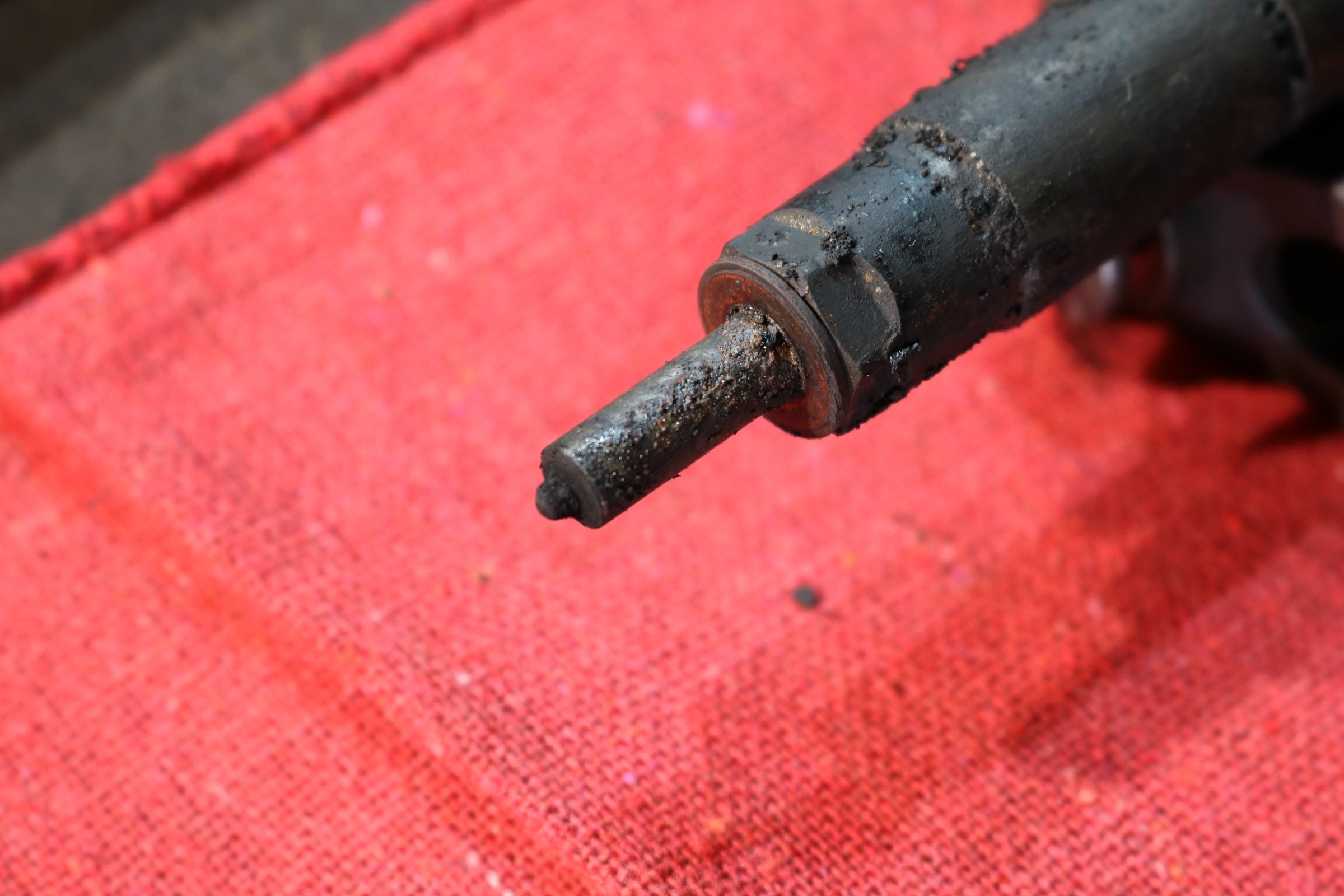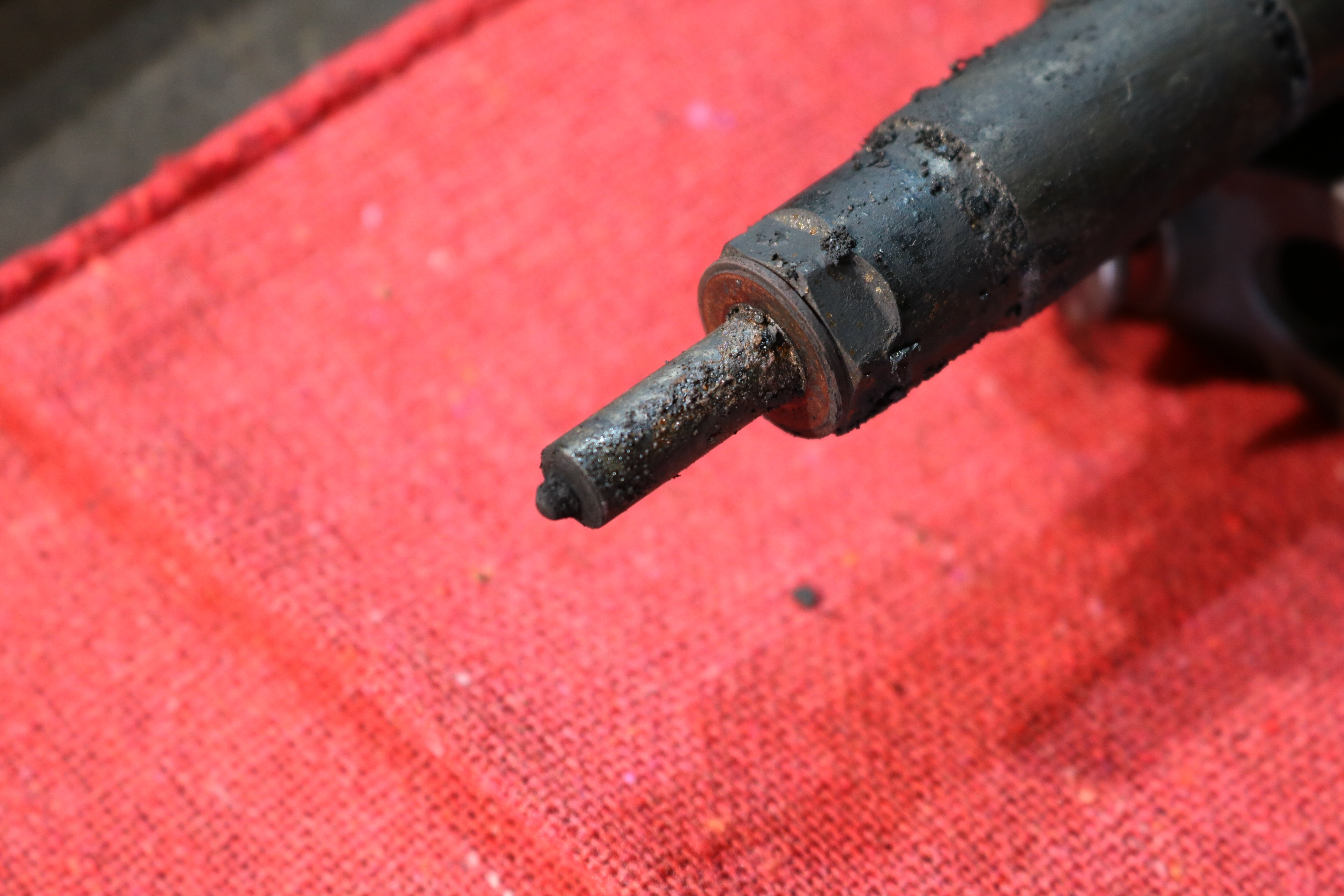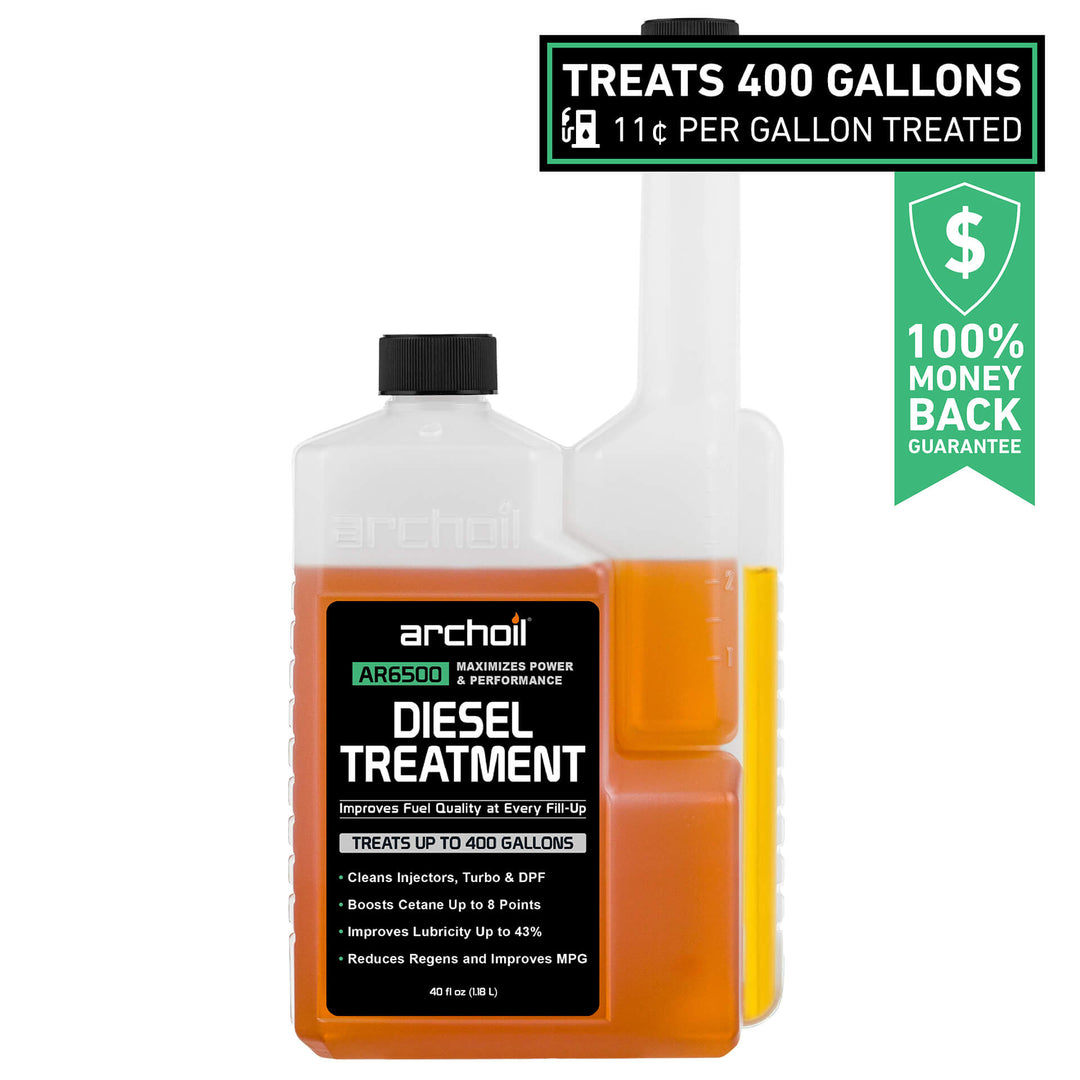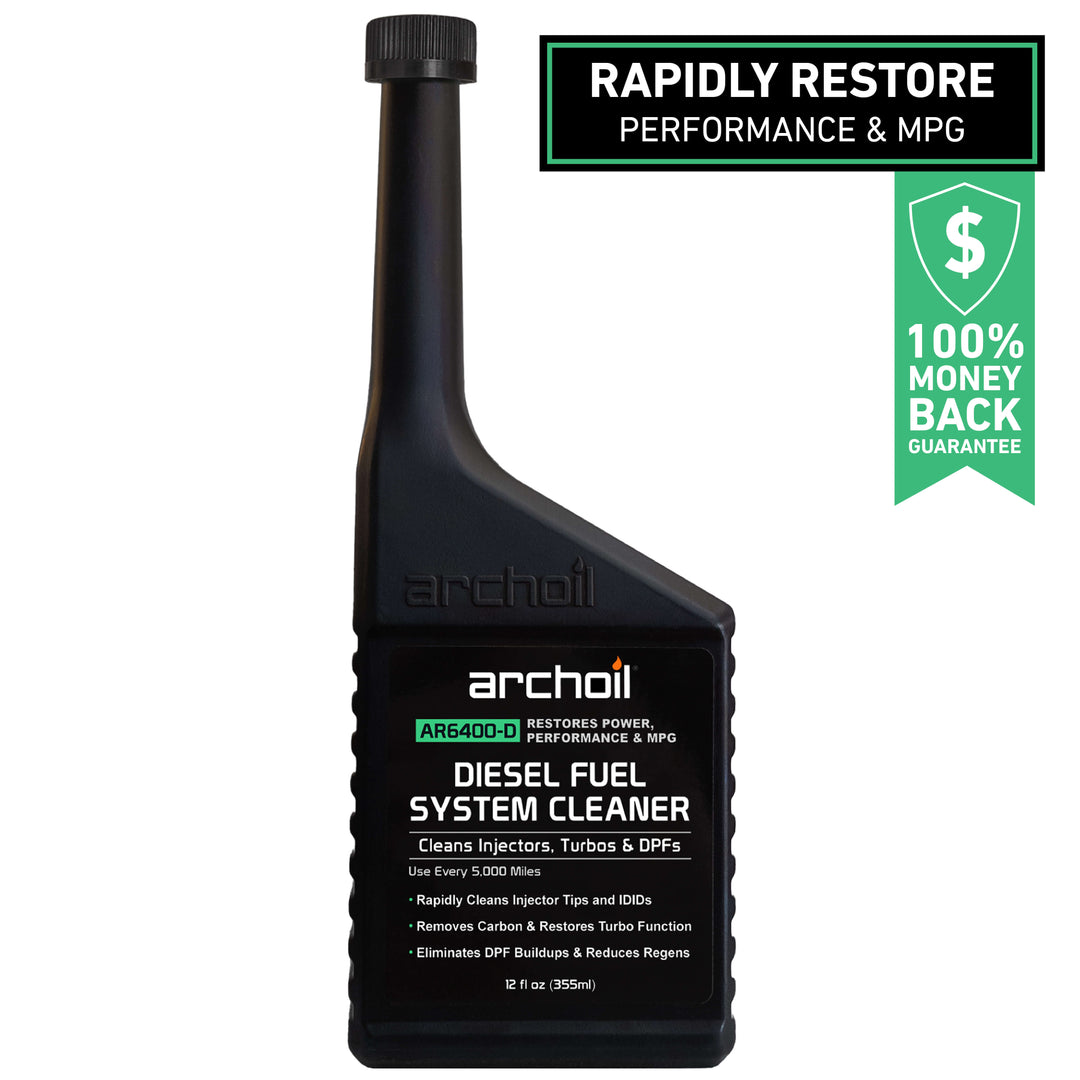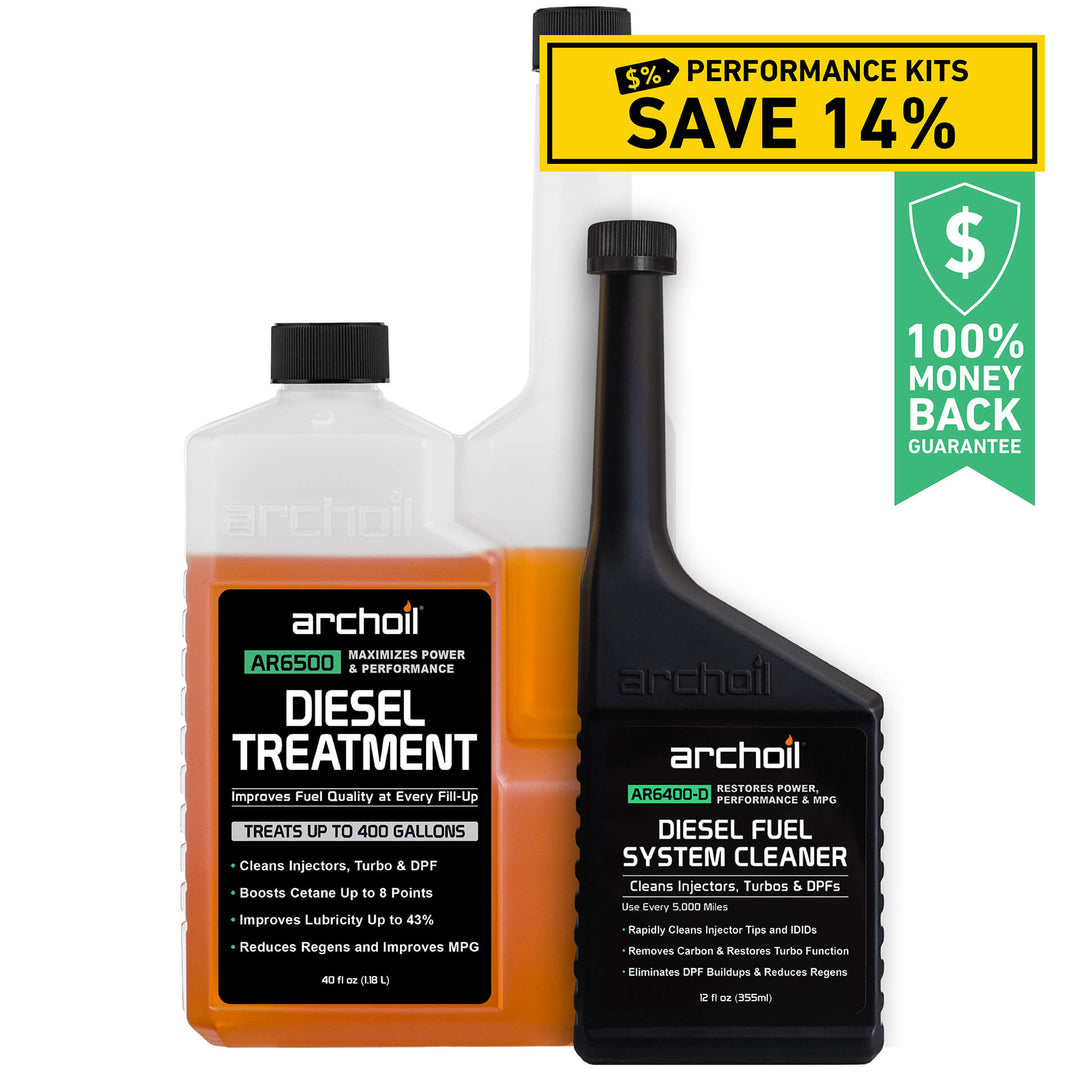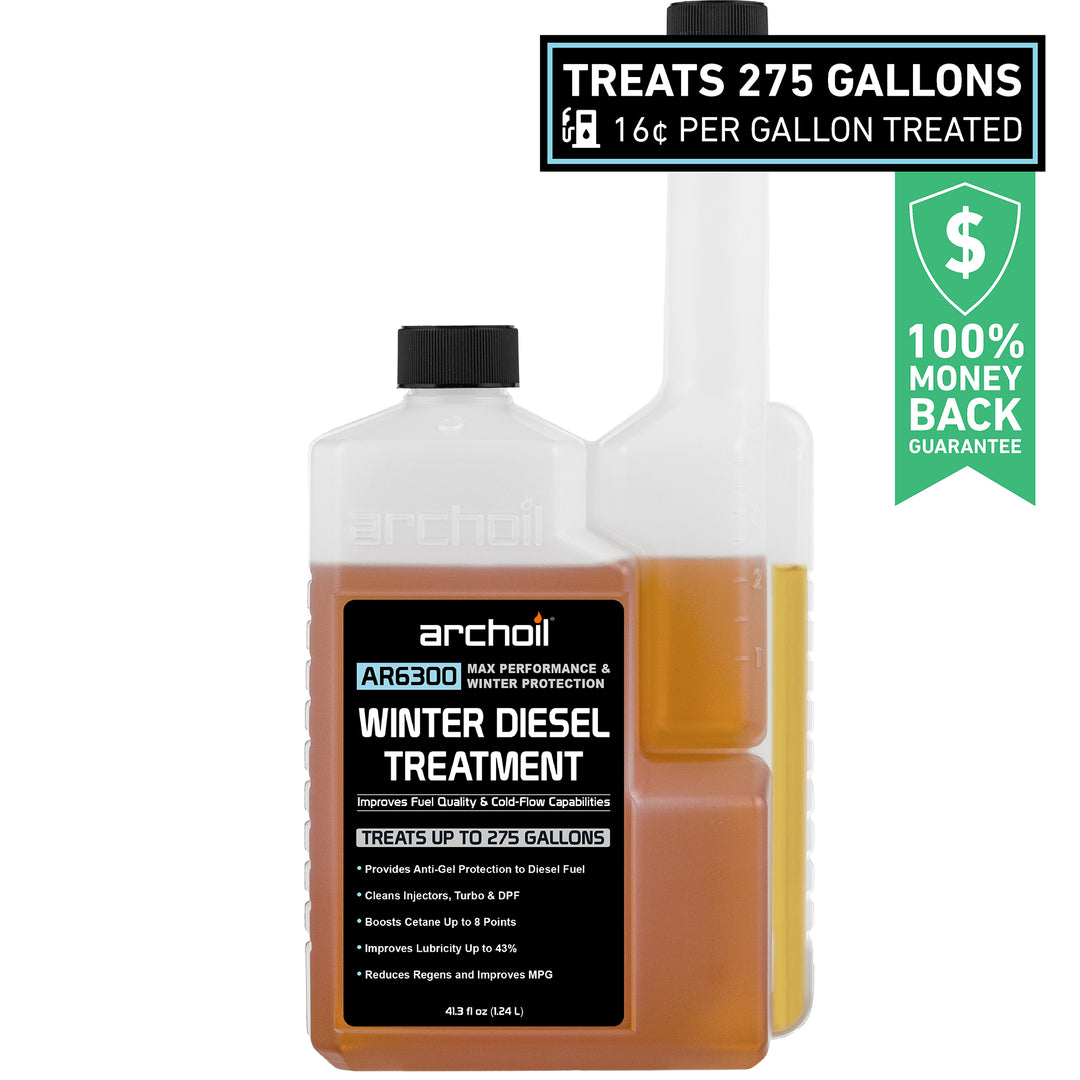What Is Soot Build-Up and How Does It Form?
Soot build-up refers to the black carbon residue that forms when diesel fuel doesn’t burn completely. In a healthy diesel engine, fuel is injected as a fine mist so it can mix with air and combust fully. If the fuel isn’t atomized properly, combustion remains incomplete and carbon soot is left behind. One major cause of incomplete combustion is fuel injector deposits. Over time, diesel injectors can develop carbon and deposits that clog their tiny nozzle holes and disrupt the spray pattern. A dirty injector with a clogged nozzle delivers a coarse, uneven fuel spray that leads directly to incomplete combustion. This creates poor atomization of the fuel and overly “rich” pockets of fuel in the cylinders that the that can’t completely burn, resulting in excess soot production. In contrast, a clean injector produces the intended ultra-fine mist, allowing the fuel to burn completely.
In short, dirty injectors = more soot, whereas clean injectors = a more complete burn and less soot.
Why Dirty Injectors Cause Soot Build-Up
When injectors are dirty, more fuel ends up unburned (as soot or carbon deposits) instead of being converted into engine power. This means the engine runs less efficiently and may feel less responsive. The bottom line is that keeping injectors clean is critical to prevent the domino effect of poor combustion → excessive soot → power loss → higher emissions.
Problems Caused by Excessive Soot Build-Up
Excess soot is far from a harmless byproduct – it has real consequences for your diesel vehicle’s performance, emissions, and maintenance costs. Some of the issues that soot build-up can lead to include:
- Reduced Fuel Economy: Soot essentially represents wasted fuel that didn’t contribute to engine power. When injectors are fouled and spraying poorly, more diesel is squandered as unburned hydrocarbons or soot instead of driving your truck forward. The result is lower MPG, since less of each gallon is doing useful work.
- Loss of Power: Incomplete combustion means you’re not harnessing the full energy potential of your fuel. Drivers may notice sluggish acceleration or a loss of horsepower because fouled injectors deliver an uneven fuel dose, leading to less efficient combustion and reduced power output.
- Higher Emissions & Black Smoke: Soot is the primary component of the black smoke you might see belching from the exhaust. Dirty injectors cause heavy particulate emissions – visible as dark black smoke, especially when accelerating or under load. This not only looks bad but indicates lots of unburned carbon escaping the engine.
- Strong Diesel Odor: That pungent diesel smell from the exhaust is another sign of incomplete combustion. Fouled injectors increase the amount of unburned fuel (hydrocarbons) in the exhaust, producing a strong raw diesel odor. If your truck’s exhaust stinks more than usual, it could mean the fuel isn’t burning fully due to dirty injectors.
- Aftertreatment Stress and Costly Repairs: Modern diesels use emissions equipment like the Diesel Particulate Filter (DPF) to trap soot. Excessive soot will clog these systems quickly. A soot-loaded DPF needs frequent regeneration (burn-off cycles) and can even fail if overwhelmed. Constant high soot loads also put strain on components like the turbocharger and EGR system. In extreme cases, a clogged DPF might need replacement – an expensive job (often up to $10,000 for a new DPF). Simply put, too much soot build-up can trigger maintenance headaches and big repair bills if not addressed in time.
The Clean Injector Solution: Archoil’s Diesel Fuel System Kit
To fight soot at the source, keeping your injectors clean is paramount – and Archoil’s Diesel Fuel System Kit makes it easy. This is a two-part additive kit designed to restore injector performance and maintain it over the long term. It combines two of Archoil’s flagship diesel treatments to tackle soot from two angles:
- AR6400-D Diesel Fuel System Cleaner: A powerful one-tank cleaner used periodically for a deep clean. AR6400-D is formulated with high-strength detergents to dissolve stubborn carbon and deposit build-up in your fuel system. Running a tank treated with AR6400-D will clear coked injector nozzles and remove heavy deposits, rapidly restoring lost horsepower and fuel economy. After a treatment, your injectors spray like new again – eliminating those rich fuel pockets that were causing soot at the source.
- AR6500 Diesel Treatment: A cetane-boosting, detergent-rich additive used in every fill-up to keep the fuel system clean and optimized. AR6500 raises the fuel’s cetane number by up to 8 points, improving ignition quality for a more complete burn (which means less soot from the get-go). It also enhances fuel lubricity (countering the lack of lubricity in ultra-low sulfur diesel) and continuously cleans injectors to prevent new deposits from forming. In essence, AR6500 protects and maintains the gains from AR6400-D, so your injectors remain in top condition tank after tank.

By using AR6400-D periodically (for a thorough clean-out) and AR6500 at every fill (for ongoing protection), diesel owners can dramatically reduce soot formation and keep their engines running at peak performance. You’ll likely see less black smoke, fewer DPF regenerations, and a smoother, more responsive engine overall. Many drivers even report recovering lost MPG and throttle response after using the Diesel Fuel System Kit – gaining back 1–2 MPG that had been lost to carbon deposits is not uncommon.
Ready to give your diesel a clean bill of health? Check out Archoil’s Diesel Fuel System Kit here to reduce soot and restore performance.





